Английский язык для специальных и академических целей: Международные отношения и зарубежное регионоведение. Часть 1 - [72]
The Reader
Does this matter? Isn't social class a relic from the era of factories, coal mines, shipyards and steelworks, of little relevance today? One reason why it deserves attention concerns people's party loyalties. When we analyse party support by the social class people give themselves, we find a much larger gulf between “middle” and “working” class voters than between ABC1 and C2DE voters.
Among “middle class” voters, the Tories lead Labour by 16 — while Labour is 21% ahead among “working class” voters. This time the class gap is a huge 37 points. The link between occupation and politics may have fractured, but that between people's self-perception and party support still matters.
To dig deeper into this, we combined “objective” and “subjective” social class data, to create four groups, represented here (and with admittedly insulting stereotypes) by characters from British comedy:
The first two represent people whose objective and subjective status are the same:
"Captain Mainwaring", the banker from Dad's Army who seeks to assert his superior status: ABC1 and middle class;
"Alf Garnett", the central character from Till Death Do US Part: working class and proud of it.
The other two represent the crossover groups:
"Dave Spart" — Private Eye’s middle-class revolutionary, who regards himself as working class;
"Hyacinth Bucket" — the snob with working class roots in Keeping Up Appearances, forever trying to inflate her social status. (See the notes for more details on the characters)
We find that the politics of the two crossover groups are driven far more by their "subjective" than their "objective" social class. Indeed, if anything, their attachment to their favoured party is slightly stronger than those whose "subjective" and "objective" locations are the same. Thus the Tory lead among Britain's Hyacinth Buckets is higher than among its Captain Mainwarings, while Labour does slightly better among the Dave Sparts than the Alf Garnetts — which, I suspect is precisely what the creators of these characters would predict if they all got together. And it will come as no surprise to them that Britain's Alf Garnetts — the C2DE folk who regard themselves as working class — provide more fertile ground for Ukip than any other group.
So: social class still plays a significant role in British politics; but how? Half a century ago, class experiences, loyalties and attitudes were rooted in ideology. Most working-class voters wanted more nationalisation, strong trade union, ambitious public spending programmes and higher income taxes (which largely came from people with middle-class jobs). That was why they voted Labour. The middle classes generally had little enthusiasm for any of these things (although, until Margaret Thatcher, few wanted to turn the clock back to small-government laissez-faire) and voted Conservative.
What are today's political dividing lines between the classes? We listed seventeen policy ideas and asked people whether they agreed or disagreed with each. We were looking not so much for the overall balance of support for each policy, but for the extent to which “middle class” and “working class” voters differ.
The Reader
The widest gulf concerns immigration. A big majority of “working class” voters want it stopped completely; “middle class” voters are evenly divided. Working class voters are also significantly more likely than middle class voters to distrust MPs as a whole, to think that Britain has changed for the worse in the past 20-30 years and to want the death penalty for those who kill police officers.
The notable thing about those dividing-line issues is that they are all cultural rather than ideological. On these, class divisions are far narrower. Big majorities on both sides of the class divide support renationalization of Britain's railways — and oppose a bigger role for private companies in the NHS. Both groups are divided on the trade-off between taxes and public spending, on whether trade unions have done more harm than good, and on whether most recipients of welfare benefits really need the money.
There are bigger differences on the more specific issue of business leaders. Working class voters are far more critical of their motives and their ability to command million-plus salaries. Concerns for equity (or, if you prefer, the politics of envy) still have a class dimension. But even these can be regarded as cultural more than ideological matters.
However, on two other cultural issues, there is no class gap at all: middle and working class voters are equally divided on the decriminalising the possession of small amounts of cannabis — and majorities of both groups want to keep the new law permitting gay marriage.
This analysis helps to explain one of the big political trends of the past sixty years — the declining dominance of the two big, ideologically-rooted, parties, and the rise of the Liberal Democrats, the Greens, the Scottish National Party — and, now, Ukip.
At the time of writing, the votes in the European Parliament elections have yet to be cast; but, for second successive election, it looks as if the combined Labour and Conservative vote will be less than 50% of all votes cast. True, this is a second-order, low-turnout election in which people feel able to cast a protest vote without risk. But it does underline how both Labour and the Tories have struggled to keep pace with the changes in British society.
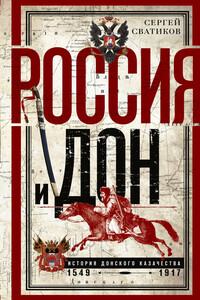
Предлагаем вашему вниманию адаптированную на современный язык уникальную монографию российского историка Сергея Григорьевича Сватикова. Книга посвящена донскому казачеству и является интересным исследованием гражданской и социально-политической истории Дона. В работе было использовано издание 1924 года, выпущенное Донской Исторической комиссией. Сватиков изучил колоссальное количество монографий, общих трудов, статей и различных материалов, которые до него в отношении Дона не были проработаны. История казачества представляет громадный интерес как ценный опыт разрешения самим народом вековых задач построения жизни на началах свободы и равенства.
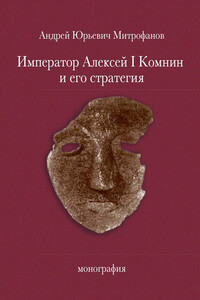
Монография доктора исторических наук Андрея Юрьевича Митрофанова рассматривает военно-политическую обстановку, сложившуюся вокруг византийской империи накануне захвата власти Алексеем Комнином в 1081 году, и исследует основные военные кампании этого императора, тактику и вооружение его армии. выводы относительно характера военно-политической стратегии Алексея Комнина автор делает, опираясь на известный памятник византийской исторической литературы – «Алексиаду» Анны Комниной, а также «Анналы» Иоанна Зонары, «Стратегикон» Катакалона Кекавмена, латинские и сельджукские исторические сочинения. В работе приводятся новые доказательства монгольского происхождения династии великих Сельджукидов и новые аргументы в пользу радикального изменения тактики варяжской гвардии в эпоху Алексея Комнина, рассматриваются процессы вестернизации византийской армии накануне Первого Крестового похода.
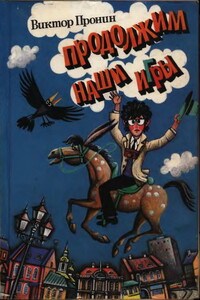
Виктор Пронин пишет о героях, которые решают острые нравственные проблемы. В конфликтных ситуациях им приходится делать выбор между добром и злом, отстаивать свои убеждения или изменять им — тогда человек неизбежно теряет многое.
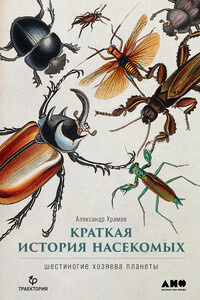
«Любая история, в том числе история развития жизни на Земле, – это замысловатое переплетение причин и следствий. Убери что-то одно, и все остальное изменится до неузнаваемости» – с этих слов и знаменитого примера с бабочкой из рассказа Рэя Брэдбери палеоэнтомолог Александр Храмов начинает свой удивительный рассказ о шестиногих хозяевах планеты. Мы отмахиваемся от мух и комаров, сражаемся с тараканами, обходим стороной муравейники, что уж говорить о вшах! Только не будь вшей, человек остался бы волосатым, как шимпанзе.
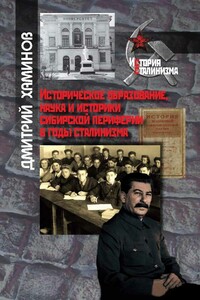
Настоящая монография посвящена изучению системы исторического образования и исторической науки в рамках сибирского научно-образовательного комплекса второй половины 1920-х – первой половины 1950-х гг. Период сталинизма в истории нашей страны характеризуется определенной дихотомией. С одной стороны, это время диктатуры коммунистической партии во всех сферах жизни советского общества, политических репрессий и идеологических кампаний. С другой стороны, именно в эти годы были заложены базовые институциональные основы развития исторического образования, исторической науки, принципов взаимоотношения исторического сообщества с государством, которые определили это развитие на десятилетия вперед, в том числе сохранившись во многих чертах и до сегодняшнего времени.

Эксперты пророчат, что следующие 50 лет будут определяться взаимоотношениями людей и технологий. Грядущие изобретения, несомненно, изменят нашу жизнь, вопрос состоит в том, до какой степени? Чего мы ждем от новых технологий и что хотим получить с их помощью? Как они изменят сферу медиа, экономику, здравоохранение, образование и нашу повседневную жизнь в целом? Ричард Уотсон призывает задуматься о современном обществе и представить, какой мир мы хотим создать в будущем. Он доступно и интересно исследует возможное влияние технологий на все сферы нашей жизни.